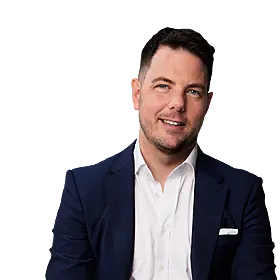The media constantly reinforces the idea that there is a 'right and a wrong accent' to speak with, a linguistics expert has warned.
UCD Assistant Professor in Linguistics Dr Stephen Lucek told Newstalk Breakfast that teenagers in Ireland are constantly fed the wrong ideas about their accents from a young age.
He said he often asks teenagers who sounds like them on TV.
"The kids from nice backgrounds say, 'A lawyer, a banker or some sports stars' or even sometimes an American or an English person who's from a very nice background," he said.
"When I ask kids from low socioeconomic areas they say, 'If I hear myself on television, I'm a drug dealer, I'm a criminal; I'm a layabout, I'm doing nothing'.
"These things are reinforced through media unfortunately, and it's something that we need to have a broader conversation about in this country.
"Especially as we're talking about adding a 10th area of protection in equality legislation for socio-economic class".
'Attitudes to styles of speech'
Dr Lucek said people can have strong perceptions of accents.
"There's plenty of evidence in linguistics research that says that people have very strong opinions about their attitudes to specific styles of speech, about their attitudes to specific accents," he said.
"We commonly see these polls that say there's a world's sexiest accent - it might be Northern Ireland, Republic of Ireland, Australian.
"But then you see all the time in the press people get upset about someone using the 'wrong accent', and that can sometimes be something that's considered a 'sexy accent'.
"Margot Robbie right now is getting some opprobrium online, because she's speaking with her Australian accent doing press for Barbie.
"This is bonkers stuff but it happens all the time - and there's a nastier edge to it, too, when it comes to housing and the job market".
'Standard variety of language'
Dr Lucek said deciding on what is the 'right' accent is usually decided at a local level.
"The idea of a standard language, a standard variety of language, usually comes through what's used by people who are considered to be prestigious in that area," he said.
"It could the language of broadcasting - no offence - it could be the language that's used in politics; however, you see all the time in Ireland that we kind of put that on its ear.
"Mattie McGrath was just getting a hard time when he was asking certain television executives 'Who they're loyal to' and they thought that he was saying 'lying.'
"That's just a misunderstanding of his particular accent".
'Reinforced through media'
Dr Lucek said teenagers from certain areas are already conscious of how they talk.
"Having carried out research with teenagers from Dublin secondary schools, I can tell you that transition year students... know that when they go in for a job interview that they have to change the way they speak," he said.
"Not everyone has to do that and that's because there is, at that age even, an understanding that there is a right accent and a wrong accent," he added.
Listen back here:









